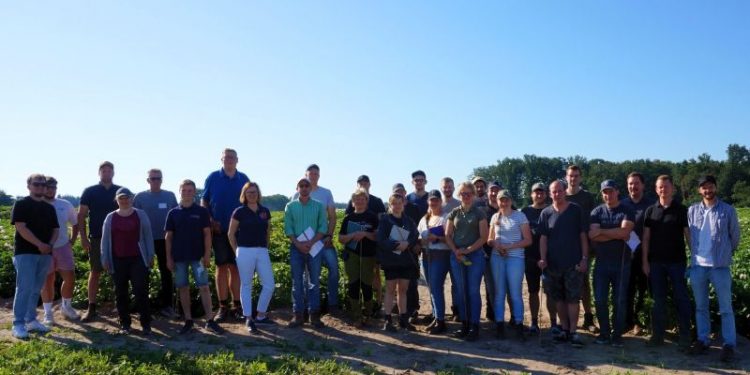German Potato Trade Association’s New Program Aims to Elevate Expertise in Potato Farming and Management
On June 25–26, 2024, the German Potato Trade Association (DKHV) held the inaugural session of its advanced training course for potato specialists in Uelzen, marking a significant step in enhancing the knowledge and skills of professionals in the potato industry. The event welcomed 26 participants from across Germany, including managing directors, agronomists, and apprentices, to engage in an intensive educational experience focused on the latest developments in potato cultivation and management.
A Comprehensive Approach to Potato Training
The two-day training course was meticulously designed to combine theoretical knowledge with practical application, addressing key aspects of potato farming and specialization. On the first day, participants delved into the theoretical foundations of potato cultivation, beginning with Laura Ritter of the DKHV who presented an overview of potato origin, morphology, and the state of potato farming in Germany. Her presentation laid the groundwork for understanding the complexities of potato cultivation from historical and scientific perspectives.
Max Schümann from the Solana Group followed with an in-depth discussion on potato breeding objectives and methods. His session covered various breeding techniques, including new and maintenance breeding, as well as advanced methods like meristem culture and quick propagation. This segment aimed to familiarize participants with the latest breeding schemes and innovations in the potato industry.
Manfred Dressler from res naturae QSV GmbH then provided insights into the morphological development of potatoes, emphasizing the importance of crop rotation, temperature requirements, and quality standards. His presentation highlighted how these factors influence successful potato cultivation and long-term crop management.
The first day concluded with Nikolaus Schackmann from the DLR Eifel, who focused on potato diseases, pests, and field inventory evaluation according to the Berlin Agreement. Schackmann’s session offered a detailed analysis of common diseases and pests, equipping participants with essential diagnostic skills and management strategies.
Hands-On Learning for Real-World Application
The second day of the training course was dedicated to practical, hands-on learning experiences. Carsten Tschentscher from the Lower Saxony Chamber of Agriculture and Nikolaus Schackmann led a field demonstration in the teaching and demonstration garden. Participants observed firsthand the differences between healthy and diseased potato plots, learning to identify damage caused by viral diseases, fungal infections, and the Colorado potato beetle’s life cycle.
This practical session provided attendees with a valuable opportunity to apply theoretical concepts in a real-world setting, enhancing their ability to manage and diagnose issues in potato crops effectively. The interactive nature of the field demonstrations allowed participants to develop a systematic approach to addressing challenges in the potato industry.
Positive Feedback and Future Plans
Laura Ritter expressed her satisfaction with the success of the seminar, noting the effectiveness of combining theoretical knowledge with practical experience. “The practical relevance of the speakers enriched the theoretical knowledge with their own experiences and anecdotes,” said Ritter.
Nikolaus Schackmann also highlighted the enthusiasm of the participants and the importance of passing on his passion for the potato industry to the next generation of professionals. Mareike Schwind, a participant, praised the comprehensive approach of the course and recognized the value of such specialized training in the further education sector.
Looking ahead, DKHV plans to resume the advanced training course on November 11 and 12, 2024, in Bavaria. Interested individuals can find more details and express their interest for the 2025 session on the DKHV website. The ongoing success of the program reflects a growing recognition of the need for specialized training in the potato industry.







